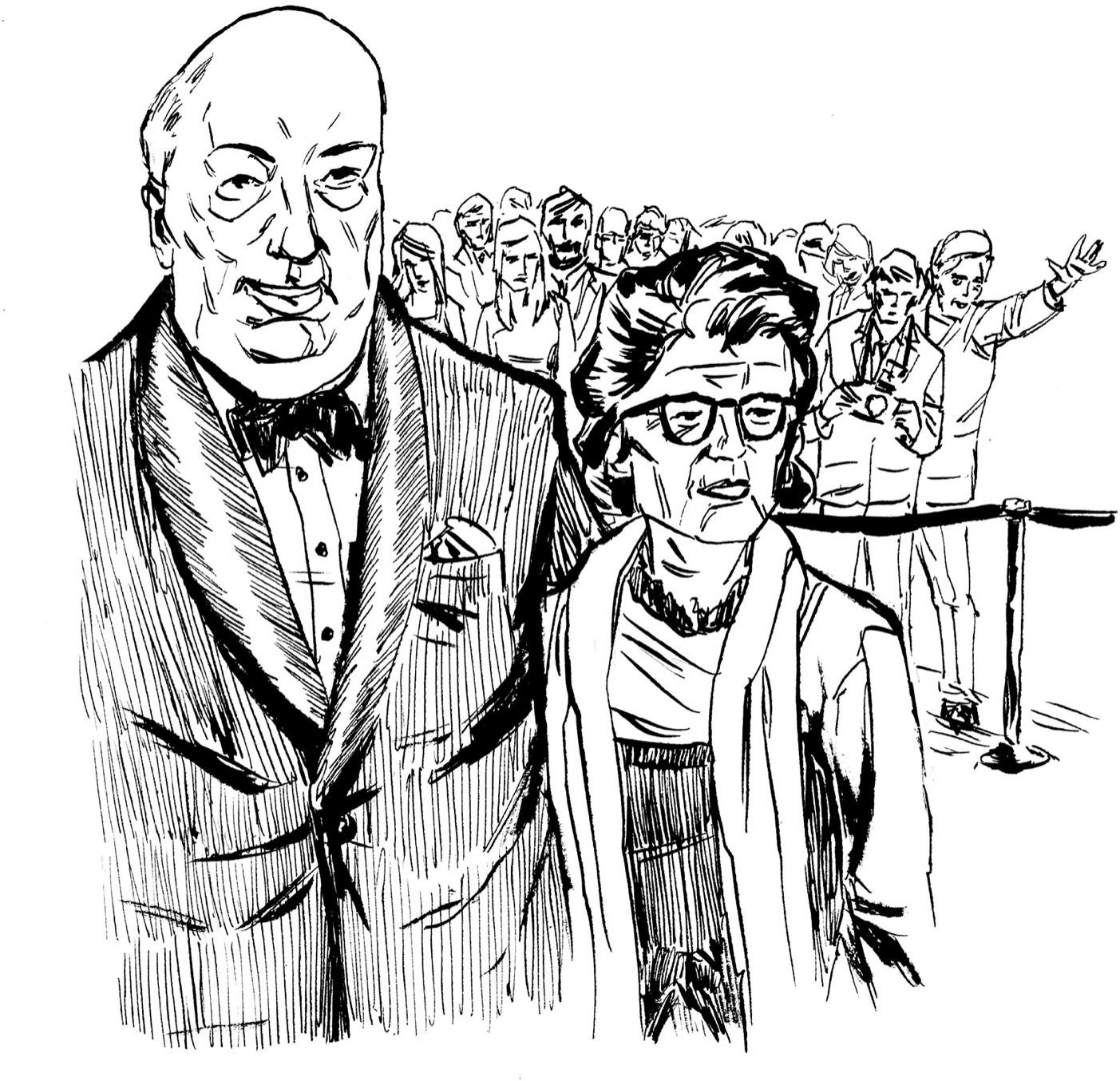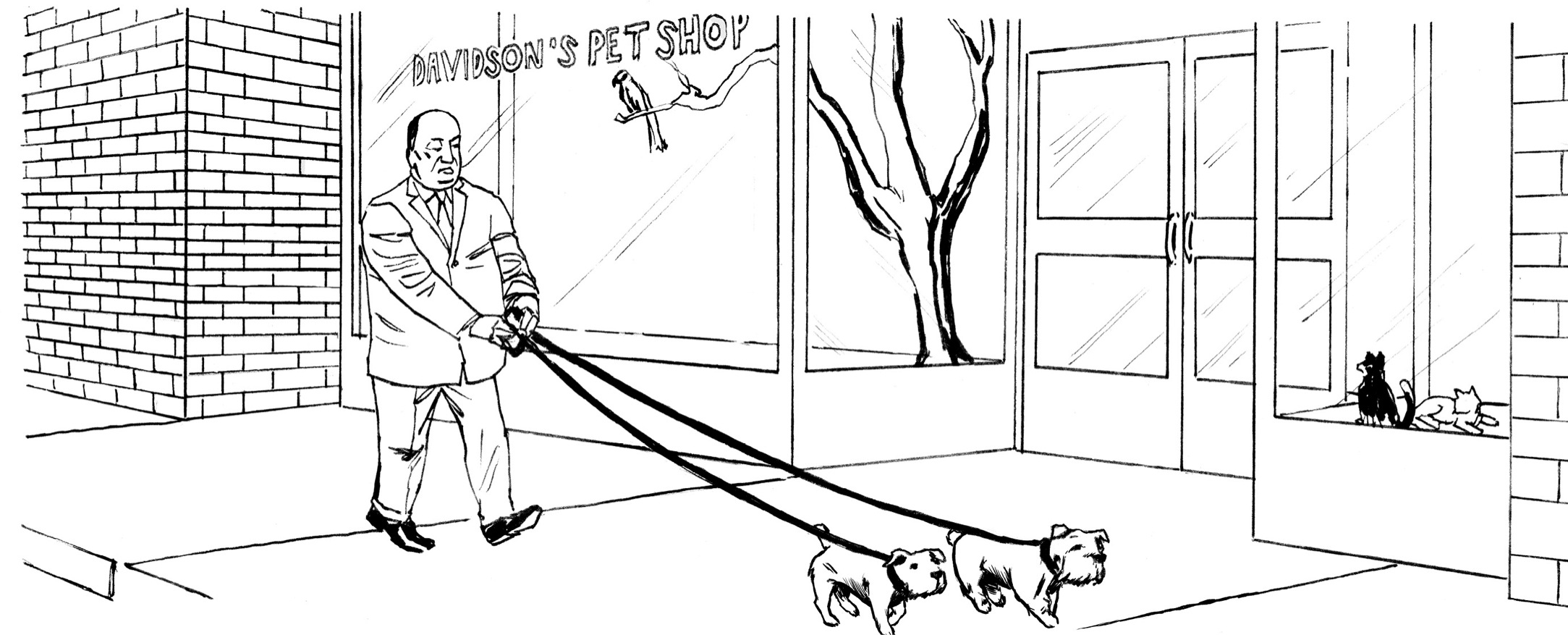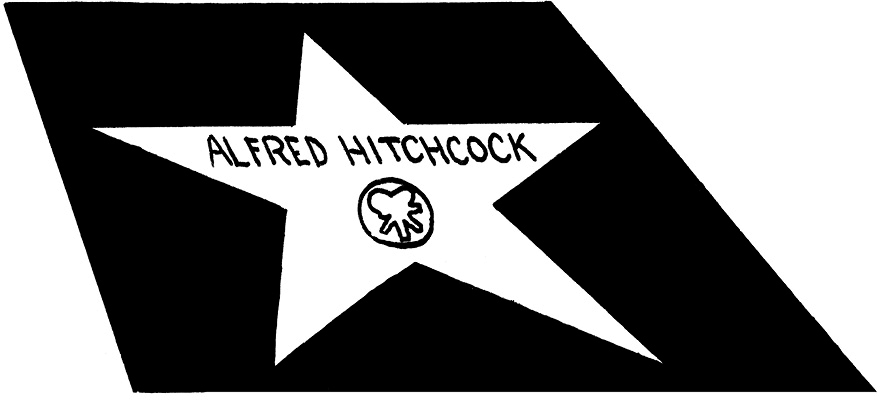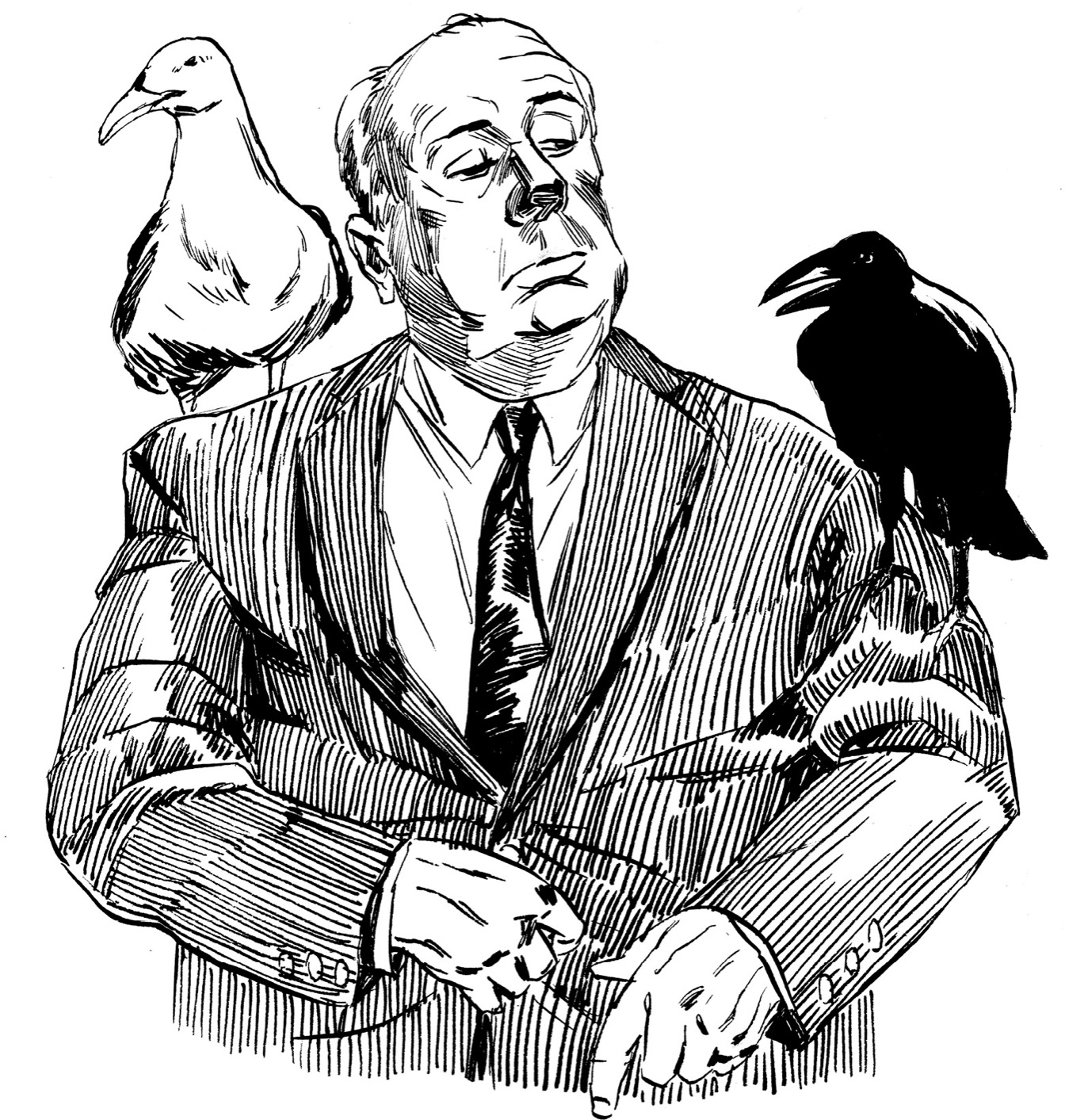Chapter 10
Sir Hitch
In 1965 Alfred Hitchcock Presents ended its run on television. Around this same time, Hitchcock’s movie production also slowed down. It was becoming more and more difficult to find projects that interested him.
In 1972 the premier of his film Frenzy surprised and impressed many people. Critics consider it to be his last masterpiece. It was about a seemingly friendly man who likes to strangle women. For Hitch, then seventy-three, the scariest thing in the shooting of Frenzy wasn’t the murderer but the stroke that Alma had during production. Terrified that Alma wouldn’t recover, Hitch almost couldn’t complete the movie.
Frenzy’s London opening was a huge event.

Hitch saw many old friends there, including Michael Balcon. Alma was well enough to attend. Many people wondered if Hitchcock was now ready to retire. “I cannot retire,” he said. “I will just have to see where the next body will turn up.”
On April 29, 1974, Hitch was honored in New York by the Film Society of Lincoln Center. Many of the great Hitchcock stars were there, even Grace Kelly, who had gone on to become Princess Grace of Monaco.

The highlight of the evening was the great director’s thank-you speech, which, naturally, was all about murder. “After all, I’m sure you will agree,” he said, “that murder can be so much more charming and enjoyable, even for the victim, if the surroundings are pleasant and the people involved are ladies and gentlemen like yourselves.”
In 1976 Hitchcock began filming Family Plot, a thriller-comedy about the search for a missing heir. On his first trip to the set in San Francisco, Hitchcock enjoyed all the fuss when his new pacemaker set off the metal detectors at the airport.
Although Hitch didn’t know it, Family Plot would be his last film. Over the next few years both he and Alma struggled with their continuing health problems. They spent time with their daughter, Pat, and their grandchildren.



In 1979 Alfred Hitchcock was given a Lifetime Achievement Award from the American Film Institute. Fifteen hundred people came to the ceremony. The audience watched a speech Hitch had taped that afternoon. In it, he told the story of being locked in the jail cell when he was a little boy. He said to the crowd, “To you young people my message is: Stay out of jail!”
At the end of that same year, Queen Elizabeth II of England named Hitchcock Knight Commander of the British Empire.
The honor was officially presented to him in front of the press at Universal Studios. A reporter asked him if he thought being “Sir Hitch” would make any difference in the way his wife treated him. “I certainly hope so,” Hitch said wickedly.
On April 29, 1980, Alfred Hitchcock died quietly at home. The man who had filmed so many murders and gruesome death scenes passed away peacefully in his bed.

He had directed more than fifty feature films over the course of nearly sixty years, and had become one of the most influential filmmakers of all time. His distinctive style of directing, featuring surprising twists and thrilling plots, shaped and changed modern movies forever.

“The only way to get rid of my fears is to make films about them,” Hitch once said. He shared his fears with the world—and the world loved him for it.